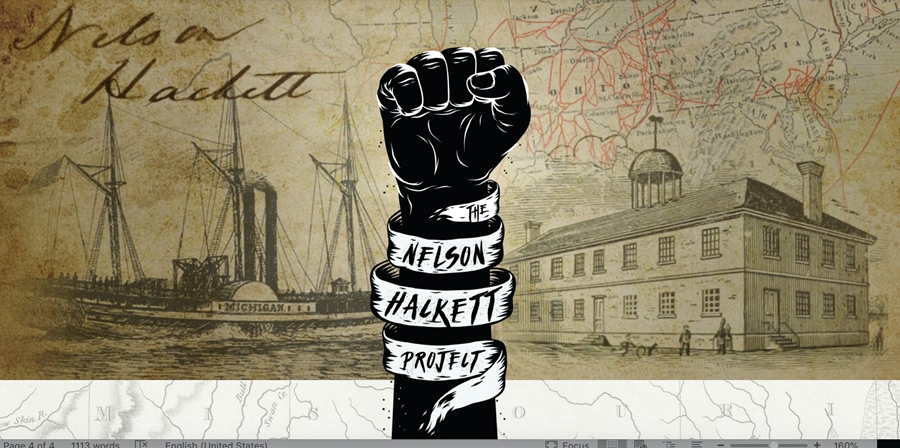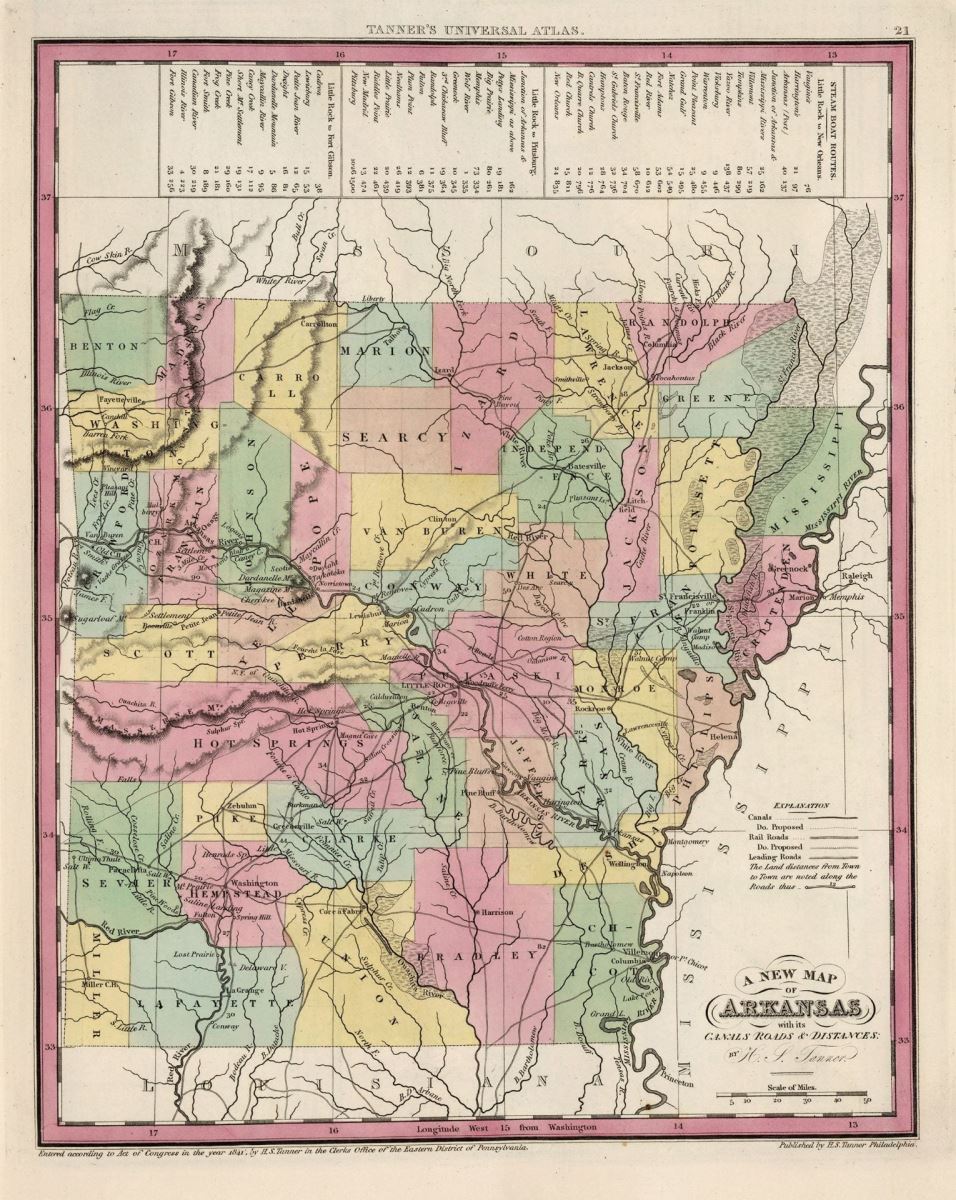
FAYETTEVILLE, Ark. – The University of Arkansas Humanities Center’s public series, Arkansas Stories of Place and Belonging, continues this fall with an exploration of The Nelson Hackett Project.
Join a team of historical experts at 7 p.m. Wednesday, Oct. 28, to learn more about Nelson Hackett, an enslaved man whose 1841 flight from Fayetteville to Canada set off a chain of events that helped ensure that Canada remained a safe refuge for fugitives from American slavery.
The discussion will take place via Zoom, and participants can receive registration information by sending an email to NelsonHackettProject@gmail.com.
“A primary problem in trying to reconstruct Hackett’s flight is that there are few records of his words and thoughts,” said associate professor of history Michael Pierce, who founded the project and did the research for it.
“This problem is rooted in the racism that undergirded chattel slavery and created most of its archival record. Hackett’s flight is therefore reconstructed using other voices, including those of both white and black abolitionists, journalists, colonial and elected officials, and slave owners and their apologists,” he said.
Pierce said that, on his way out of Arkansas, Hackett took his owner’s fastest horse, a saddle, a coat, and a neighbor’s gold watch.
The man who claimed to own Hackett then followed him to Canada, had him arrested on charges of theft, and secured his extradition back to Fayetteville. Hackett consequently became the first and only fugitive that Canada ever returned to slavery.
 |
|
“A New Map of Arkansas with Its Canals, Roads & Distances,” (Philadelphia: H. S. Tanner, 1842). Image courtesy of the David Rumsey Historical Map Collection, Stanford University, davidrumsey.com |
“Hackett’s extradition, though, provoked international furor,” Pierce said. “Abolitionists – black and white, American, Canadian, and British – refused to allow Hackett’s return to Fayetteville to set a precedent. They invoked his case in a successful campaign to convince the British government to make the extradition of those fleeing slavery all but impossible.”
In this way, Pierce said, Hackett’s flight helped secure Canada’s status as a haven for men and women escaping bondage in the American South.
The Oct. 28 program, co-sponsored by the Washington County Historical Society, will consist of three short 20-minute presentations and the official launch of a new public humanities website devoted to telling Hackett’s story.
The discussion will be hosted by Kathryn Sloan, professor of Latin American history, vice provost for faculty affairs, and director of the Arkansas Stories series.
The presentations will feature scholars, including:
- Michael Pierce, associate professor of history, who created the project and will narrate Hackett’s journey to Canada, his forced return to Arkansas, and the diplomatic battles it provoked.
- Lisa Childs, a graduate student in history and the Division of Agriculture’s patent attorney, who will examine the white slaveholding community in early Fayetteville.
- Caree Banton, associate professor of history, who will conclude with a look at the role that fugitives like Hackett played in the transnational movement for emancipation and abolition.
After the discussion, the team will also officially launch the new website for The Nelson Hackett Project, which can be found on the Arkansas Stories website.
The website, created by Red Rooster Design of Fayetteville, is based on a script produced by Pierce, which includes narratives of Hackett’s flight, abolitionist efforts to secure his release, and the campaign to ensure that no more fugitives were sent back to bondage. It also features numerous primary documents, maps, and transcriptions.
About Arkansas Stories: The series Arkansas Stories of Place and Belonging is an innovative public scholarship and engagement series at the University of Arkansas, funded by a Chancellor’s Innovation and Collaboration Grant, that brings together scholar-experts, students, and the general public to engage in informed conversations about the region’s fascinating history of human interaction. Utilizing objects and places as focal points to narrate compelling stories of the movement of humans and ideas across centuries, Arkansas Stories illuminates what makes up our common heritage.
About University of Arkansas Humanities Center: The University of Arkansas Humanities Center in Fulbright College of Arts and Sciences promotes cross-disciplinary research and inquiry in the humanities, and sponsors programs that engage humanities scholars and the wider public in conversations about critical topics, and fosters a strong role for the humanities in an increasingly global society.
About Washington County Historical Society: Established in 1951, the Washington County Historical Society‘s mission is to discover, preserve, and celebrate the history of Washington County, Arkansas, and to share that heritage with others.
About the University of Arkansas: The University of Arkansas provides an internationally competitive education for undergraduate and graduate students in more than 200 academic programs. The university contributes new knowledge, economic development, basic and applied research, and creative activity while also providing service to academic and professional disciplines. The Carnegie Foundation classifies the University of Arkansas among fewer than 3% of colleges and universities in America that have the highest level of research activity. U.S. News & World Report ranks the University of Arkansas among its top American public research universities. Founded in 1871, the University of Arkansas comprises 10 colleges and schools and maintains a low student-to-faculty ratio that promotes personal attention and close mentoring.
Topics
Contacts
Michael Pierce, associate professor of history
Fulbright College of Arts and Sciences
479-575-6760,
Andra Parrish Liwag, development writer
Fulbright College of Arts and Sciences
479-575-4393,